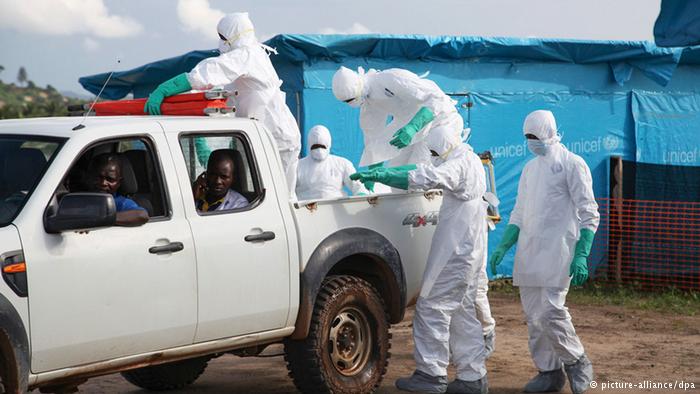Nigeria has confirmed its first Ebola death outside Lagos – a doctor in the oil hub of Port Harcourt. A further 70 people are under surveillance in the city, while his wife has been put under quarantine.
He died last Friday but the results of the tests have only just been announced by Nigeria’s health minister. The latest figures show that more than 1,550 people have died, with more than 3,000 confirmed cases – mostly in Guinea, Liberia and Sierra Leone.
West Africa’s health ministers are meeting in Ghana to discuss how to tackle the world’s most deadly Ebola outbreak. Ebola Virus Disease (EVD)
- Symptoms include high fever, bleeding and central nervous system damage
- Fatality rate can reach 90% – but current outbreak has mortality rate of about 55%
- Incubation period is two to 21 days
- There is no vaccine or cure
- Supportive care such as rehydrating patients who have diarrhoea and vomiting can help recovery
Fruit bats, a delicacy for some West Africans, are considered to be virus’s natural hostEbola was taken to Nigeria by Patrick Sawyer, a Liberian-American man who travelled to Lagos before dying. One of his contacts evaded Nigeria’s surveillance team and travelled to Port Harcourt, where he sought medical treatment, Health minister Onyebuchi Chukwu said.
Although the man later recovered, the doctor who treated him died and tests showed he had Ebola, the minister said. The doctor who treated Mr Sawyer also died.
More than 240 health workers have been infected with Ebola – a rate which the World Health Organization (WHO) said was “unprecedented”. It noted that in many cases protective suits, even rubber gloves and face masks, were not available.
The doctor becomes the sixth fatality in Nigeria, which is Africa’s most populous country. On Wednesday, Nigeria announced that schools would not reopen until 13 October in order to try and contain the disease.
Source: bbc news


